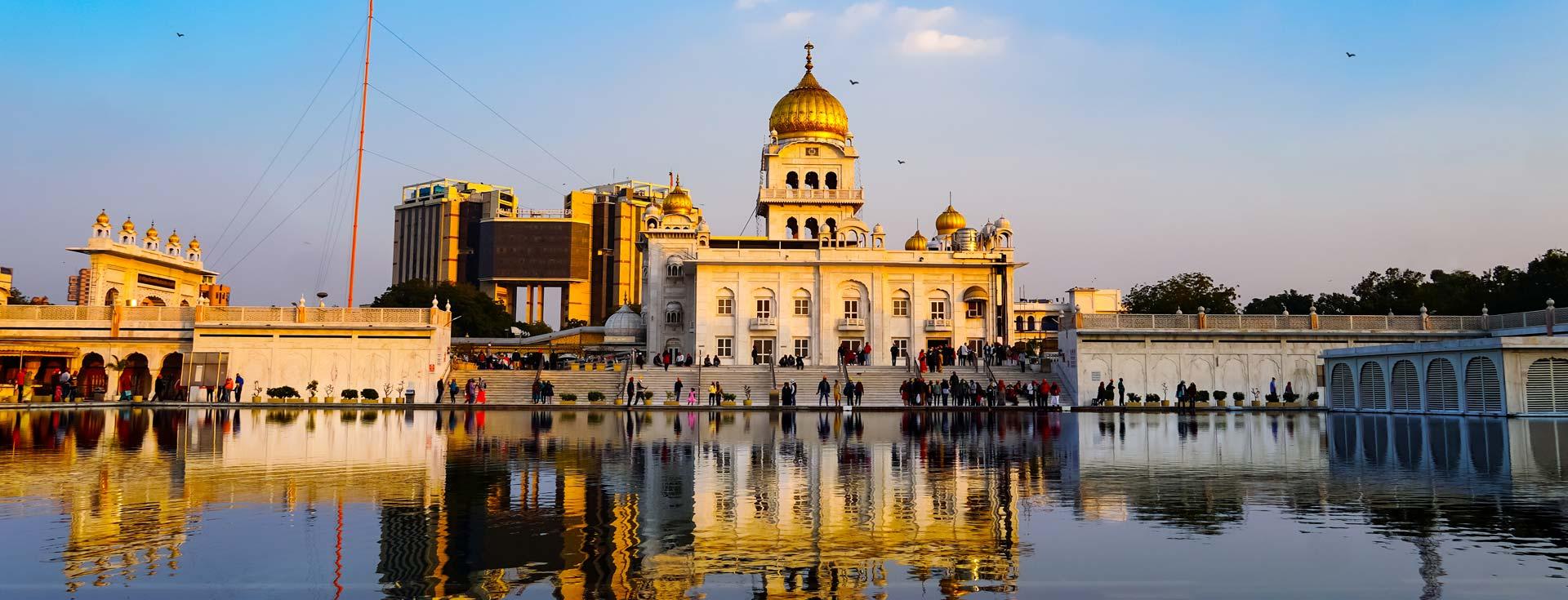Bangla Sahib Gurdwara is a Sikh pilgrimage site located in Delhi, India. It is one of the most important gurdwaras in the world, and is a popular tourist destination.
The gurdwara was built in the 17th century by Guru Har Krishan, the ninth Sikh guru. It was originally a bungalow owned by Raja Jai Singh, a Rajput ruler. Guru Har Krishan stayed at the bungalow during his visit to Delhi, and it was later converted into a gurdwara.
The gurdwara is named after the bungalow, which was known as “Bangla Sahib”. The gurdwara is a two-story building with a white marble facade. The upper floor houses the sanctum sanctorum, which contains the Guru Granth Sahib, the Sikh holy book. The lower floor houses a library, a museum, and a langar, or free kitchen.

The gurdwara is a major center of Sikh religious activity. It is a place where Sikhs come to worship, learn about their faith, and participate in community activities. The gurdwara also serves as a place of social and cultural importance for the Sikh community.
History of Bangla Sahib Gurdwara
The history of Bangla Sahib Gurdwara is closely linked to the history of Sikhism. The gurdwara was built in the 17th century by Guru Har Krishan, the ninth Sikh guru. Guru Har Krishan was a young child when he became the guru, and he is known for his compassion and love for all people.
ALSO READ :> A House Divided
Guru Har Krishan visited Delhi in 1664. He stayed at the bungalow owned by Raja Jai Singh, a Rajput ruler. During his stay, Guru Har Krishan healed many people, including a Muslim child who was blind.
After Guru Har Krishan’s death, the bungalow was converted into a gurdwara. The gurdwara was expanded and renovated several times over the centuries. In 1931, the gurdwara was given its current white marble facade.
Significance of Bangla Sahib Gurdwara
Bangla Sahib Gurdwara is one of the most important gurdwaras in the world. It is a place of pilgrimage for Sikhs from all over the world. The gurdwara is also a popular tourist destination, and is visited by people of all faiths.
The gurdwara is significant for several reasons. First, it is the site where Guru Har Krishan stayed during his visit to Delhi. Second, the gurdwara is a place of worship for Sikhs. Third, the gurdwara is a symbol of Sikhism’s message of peace and compassion.

Things to see and do at Bangla Sahib Gurdwara
There are many things to see and do at Bangla Sahib Gurdwara. Visitors can:
- Worship at the sanctum sanctorum, which houses the Guru Granth Sahib.
- Learn about Sikhism at the museum.
- Enjoy a free meal at the langar.
- Take a walk around the gurdwara complex.
Bangla Sahib Gurdwara is a must-see for anyone visiting Delhi. It is a beautiful and peaceful place that is rich in history and significance.





